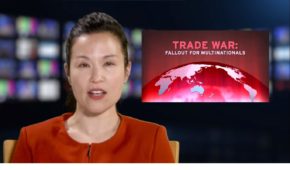
China is the largest producer of rare earths for the high-tech industry, so using that position in the trade war with the US pops up regularly. But that weapon might hurt China more, warns financial analyst Sara Hsu in China US Focus.
Sara Hsu:
In the short run, the restrictions on rare earths will ratchet up tensions in the trade war and create a headache for US producers who rely on rare earths inputs into production. While the dollar amount imported isn’t huge–the US imported $160 million of the materials last year in total–the elements play a critical role in production of high-tech goods and substitutes are not readily available. If the US is successful in shifting mining and processing of the elements domestically or to other countries, this will in the long run reduce demand of the goods from China and eliminate this category as an economic weapon against other nations.
In fact, this could apply to any relatively scarce resource that either side is willing to withhold from export or ban from import. For the US, tariffs on about half of goods imported from China — about $100 billion worth of goods—have been especially harmful, since for these categories shipments from China represent over 50% of imports. This makes it extremely difficult to reorganize the sourcing of many products, but as the trade war deepens, entrenched supply chains are increasingly likely to shift.
In addition, the US has banned Huawei from receiving components and software from American firms, but experts say this will harm American companies economically without making the US more secure. There is a concern that Huawei and other Chinese technology firms will move away from sourcing from the US to other countries. This shift has precedent; before China re-committed to purchasing soybeans from the US, its tariffs on the agricultural goods induced retail and wholesale outlets to purchase soybeans from other countries, such as Russia and Brazil. This move shows that China will do its best to fulfill demand from countries other than the United States.
The game could go on for some time, with either side pelting the other with new restrictions. Anything the other side exempted from tariffs likely represents a particular vulnerability. However, the longer the trade war goes on, the more likely it is that both the US and China will turn away from one another as trade partners and look for other sources of imports, or attempt to produce affected goods domestically. This will erase the strides made in negotiating free trade.
Ultimately, this is a losing game. Any weapon that will be used will ultimately be turned on the user. The US and China may be locked into confrontation, but these tit-for-tat maneuvers are looking less rational with every retaliation.
Sara Hsu is a speaker at the China Speakers Bureau. Do you need her at your meeting or conference? Do get in touch or fill in our speakers’ request form.
Are you looking for more experts on the ongoing trade war at the China Speakers Bureau? Do check out this list.
